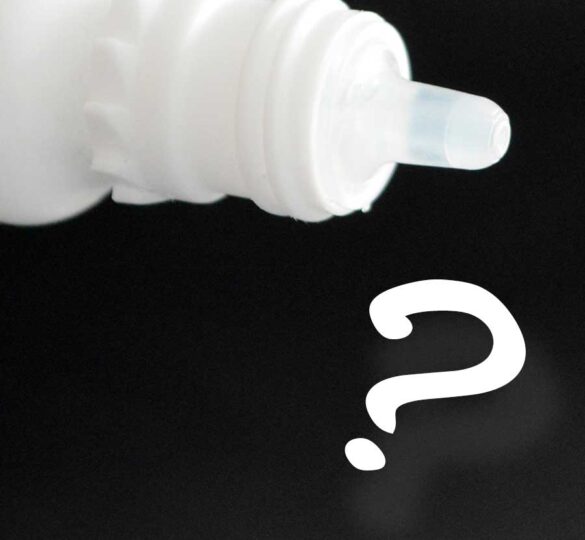Tips To Minimize the Side Effects of Glaucoma Medications
If you are experiencing side effects from your glaucoma medications, learn what you can do to reduce or eliminate them.

Fortunately for people with glaucoma, medications are available to help treat it. If you experience side effects from your glaucoma medications, there are things you can do to reduce or eliminate them. It’s critical to follow directions and let your doctor know what medications you’re taking. If you experience side effects, talk to your doctor as soon as possible.
Possible Side Effects
Various side effects are possible depending on the type and class of medication you’re taking. Although many patients experience no side effects, others may suffer from mild side effects. Severe side effects are rare. Some side effects are minor but common, like eye redness, worsening eye dryness, and allergy, while others are rare and affect only occasional patients. Other common side effects include blurry vision, breathing problems in people with asthma, emphysema, or COPD, a slow or irregular heartbeat, depression, and dizziness.
It’s not entirely understood why a drug causes side effects for some people and not others, but it may be due to genetic factors.
Use the Correct Amount of Medication
One way to help minimize the side effects of glaucoma medication is to use the right amount. Too much medicine can cause side effects such as blurred vision, nausea, vomiting, drowsiness, dizziness, or headaches.
In addition to using the correct amount, it’s essential to use the right number of drops per dose and daily frequency. For example, if you take one drop every two hours throughout the day, your eyes will be constantly exposed to higher levels of medication than they would if you only took one drop every four hours. Therefore, patients with glaucoma need to follow their doctor’s recommendations about dosage frequency.
Eye Drops
Only Use Your Drops As Prescribed
It’s important to follow instructions. If you don’t follow the instructions, you may have more side effects, and your medication won’t work as well. Talk to your doctor if you have questions about how to use a specific medication or if it isn’t working for you. Your doctor will help determine what’s wrong.
If you have any side effects from taking glaucoma medications, call your doctor immediately so they can discuss them with you and figure out what went wrong or what else might help.
- Don’t use your drops more often than prescribed.
- Don’t use your drops more frequently than prescribed.
- Don’t mix your drops with other medications.
- Don’t use your drops for other eye problems, such as irritation or redness of the eyes from dust or wind, that are not related to glaucoma or another health problem, such as an eyelid infection (blepharitis).
- Always use the amount of medication prescribed by your doctor, even if it seems to help a little bit at first.
Minimizing Side Effects from Eye Drops
The best way to minimize the systemic effects of many glaucoma medications is to instill the eye drops, close your eyes, then gently press on the inside corner of your closed eyes with your index finger and thumb for two to three minutes.
Doing so will help keep any drops from getting into your system and keep them in your eye where needed. Also, always remember to wash your hands before putting in your eye drops. Finally, try not to allow the bottle tip to touch your eye.
Once the drop is on the eye, do not blink your eye or move it around to spread the drop. Instead, gently close your eyes just once, place the pad of your most sensitive finger at the inside corner of the eyelid by the nose, and press gently.
Leave the eyelids closed and the finger pressing gently for two full minutes. Studies have shown that the drop takes two minutes to penetrate the eye’s surface. In addition, the closed eyelids and pressure on the tear drainage duct prevent unwanted systemic side effects from the potent eyedrop drugs by preventing the drop from getting inside the nose, where it could enter the bloodstream rapidly.
After two minutes, the drop is fully absorbed into the eye. You can then put a different drop in if you use more than one drop.
Oral Medications
If eye drops aren’t effective in lowering the pressure in your eyes, doctors may prescribe oral medications. Most often, oral medications for glaucoma are carbonic anhydrase inhibitors, which ease the pressure by slowing fluid production in the eyes. Side effects may include fatigue, upset stomach, memory issues, increased urination, and tingling in the hands and feet.
Take Your Medication As Prescribed
Whether your doctor suggests eye drops or pills for your glaucoma, you must take your medicine regularly as prescribed. If you experience side effects, let your doctor know so they can make any necessary adjustments.
Help Us Find a Cure
While there’s no cure for glaucoma, advancements in research continue to bring us closer to finding a cure and restoring vision loss from glaucoma. You can help find a cure with cash, stock, or a vehicle donation. Your support will give hope to those living with glaucoma and accelerate our search for a cure and vision restoration.
Posted on August 25, 2022. Article reviewed for medical accuracy by Ahmad A. Aref, MD.

Ahmad A. Aref, MD, MBA
Dr. Aref is an Associate Professor of Ophthalmology and attending physician in the Glaucoma and Cataract Consultation Service at the University of Illinois. He serves as the Illinois Eye & Ear Infirmary’s Medical Director, Glaucoma Fellowship Director, and Vice Chair for Clinical Affairs.